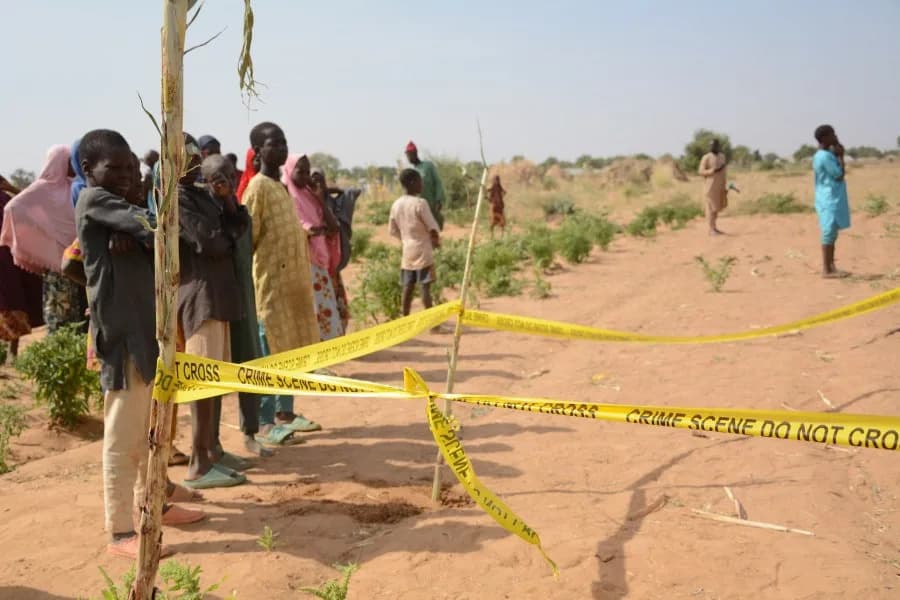Key points: U.S. forces and surveillance drones left Niger after a March diplomatic clash, and two airbases closed in September, leaving commanders with limited aerial coverage. AFRICOM leaders warn extremist attacks and weapons proliferation in the Sahel have increased since the pullout. The loss of local basing complicates hostage-rescue operations because locating kidnapped individuals is now far more difficult. The U.S. State Department advises Americans not to travel to Niger due to crime, unrest, terrorism and kidnapping.
Niger Fallout Leaves U.S. Forces 'Blind' in the Sahel, Officials Warn

U.S. surveillance gaps hamper responses to kidnappings and extremist threats
U.S. troops working to counter al Qaeda- and ISIS-linked fighters in Niger and other parts of the Sahel are reportedly operating “completely blind” after the withdrawal of personnel and surveillance assets, according to U.S. officials who spoke to Fox News Digital.
One Pentagon source told Fox News Digital that commanders trying to respond to major incidents — including the Oct. 21 kidnapping of a U.S. citizen — now face what he described as "a black hole." The United States had maintained two airbases in Niger until September of last year; from those sites, surveillance drones equipped with high-resolution cameras monitored extremist movements and helped locate kidnapped individuals in previous operations.
Diplomatic clash and the withdrawal
Relations between Washington and Niamey frayed after a March delegation visit. On March 16, Nigerien government spokesman Amadou Adramane publicly criticized the U.S. delegation’s conduct, accusing team members of a "condescending attitude" and saying the delegation sought to limit Niger’s freedom to choose partners.
Mary "Molly" Phee, then assistant secretary of state for the Biden administration and head of the delegation, later told Fox News Digital she was delivering a White House-approved interagency proposal. Several sources told Fox News Digital that Phee pressed Niger’s leaders to curb engagement with Russia and Iran or face potential sanctions; others described her delivery as forceful. Phee defended her delegation’s approach as professional diplomacy and said critics were "blaming the messenger."
Operational impact and regional consequences
Within months of the March meeting, U.S. personnel and surveillance drones left Niger, leaving U.S. commanders with greatly reduced on-the-ground coverage, the military source said. Marine Corps Gen. Michael Langley, then commander of U.S. Africa Command (AFRICOM), warned in May that violent extremist attacks and weapons proliferation had increased across the Sahel since U.S. forces departed.
"Since we left Niger in September of last year, we’re observing a rise in attacks by violent extremist organizations," Gen. Langley told African defense leaders, noting spillover into neighboring countries.
The military source also described AFRICOM as resource-constrained, with a major base in Djibouti and smaller contingents in Somalia and Kenya. He argued U.S. basing limitations and budget pressures have reduced rapid-response options in the region.
That lack of local basing complicates hostage-rescue prospects: while special operations units such as SEAL Team Six have conducted rescues in the past, successful operations first require accurate, timely location intelligence — something officials say is far harder without persistent aerial surveillance. Analysts additionally noted that harsh Sahel conditions, including dust and heat, can limit real-time effectiveness of commercial and military satellites for tracking.
Advisories and official responses
The U.S. State Department currently posts a travel advisory for Niger at its highest level: "Do not travel to Niger for any reason due to crime, unrest, terrorism, health, and kidnapping." Fox News Digital said it contacted AFRICOM, the Department of Defense and the State Department for comment but had not received responses by publication.
Context: U.S. surveillance activity from Niger previously contributed to locating a U.S. resident kidnapped in 2020, an operation that led to a successful rescue by U.S. special operations forces. The recent pullout and diplomatic tensions have raised concern among U.S. officials about reduced situational awareness and slower reaction times to extremist threats in the broader Sahel region.
Help us improve.


































